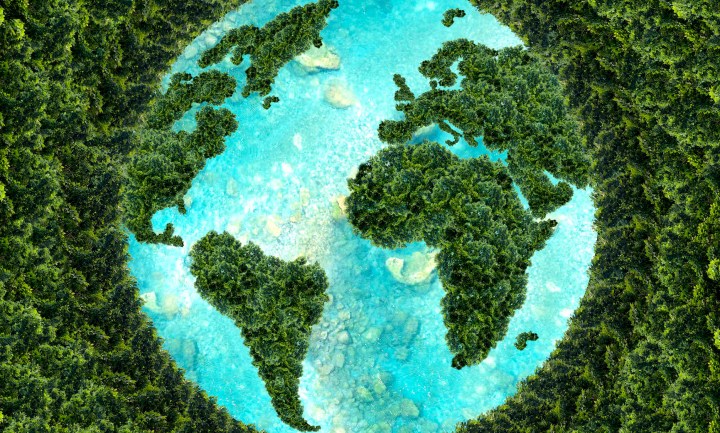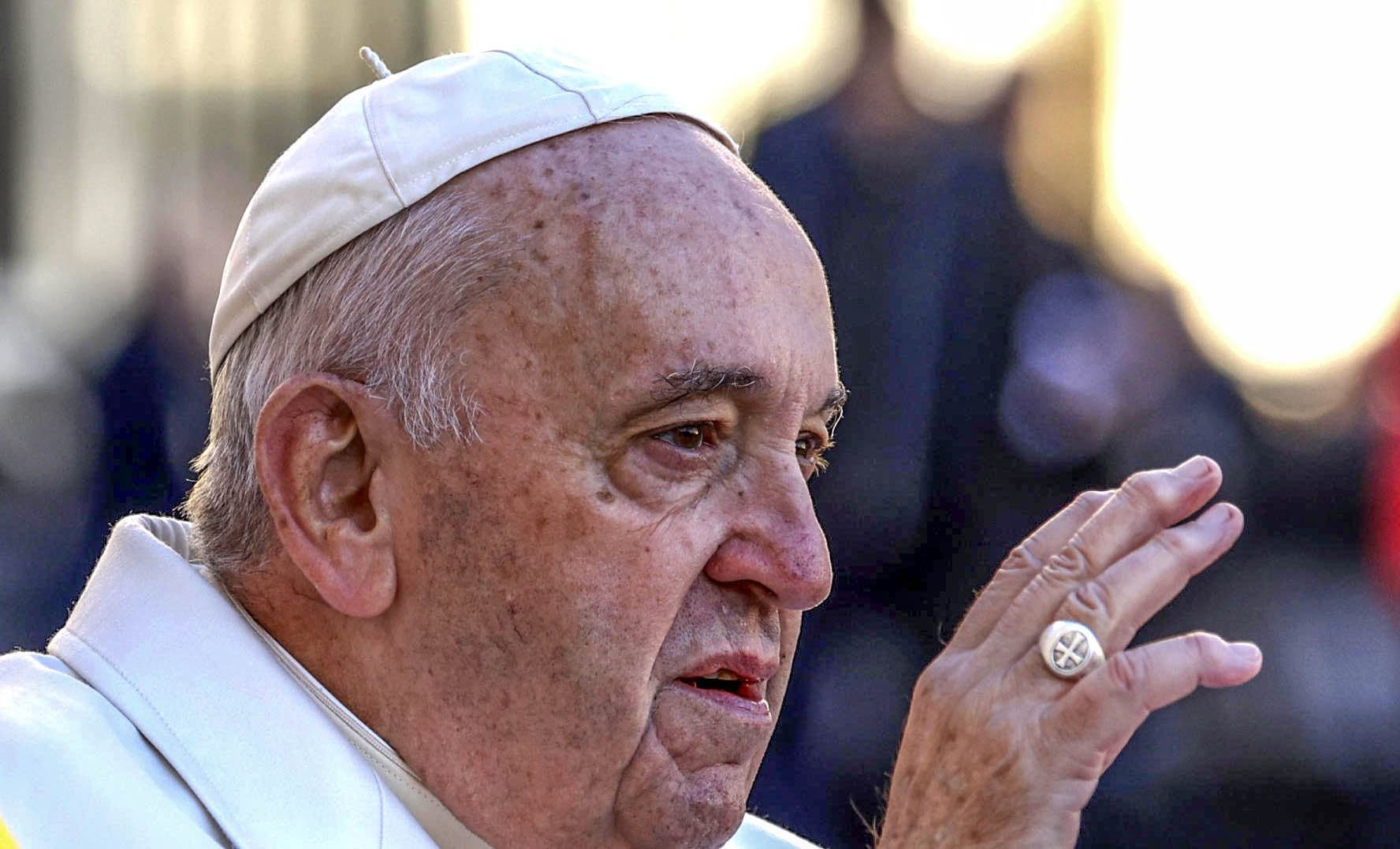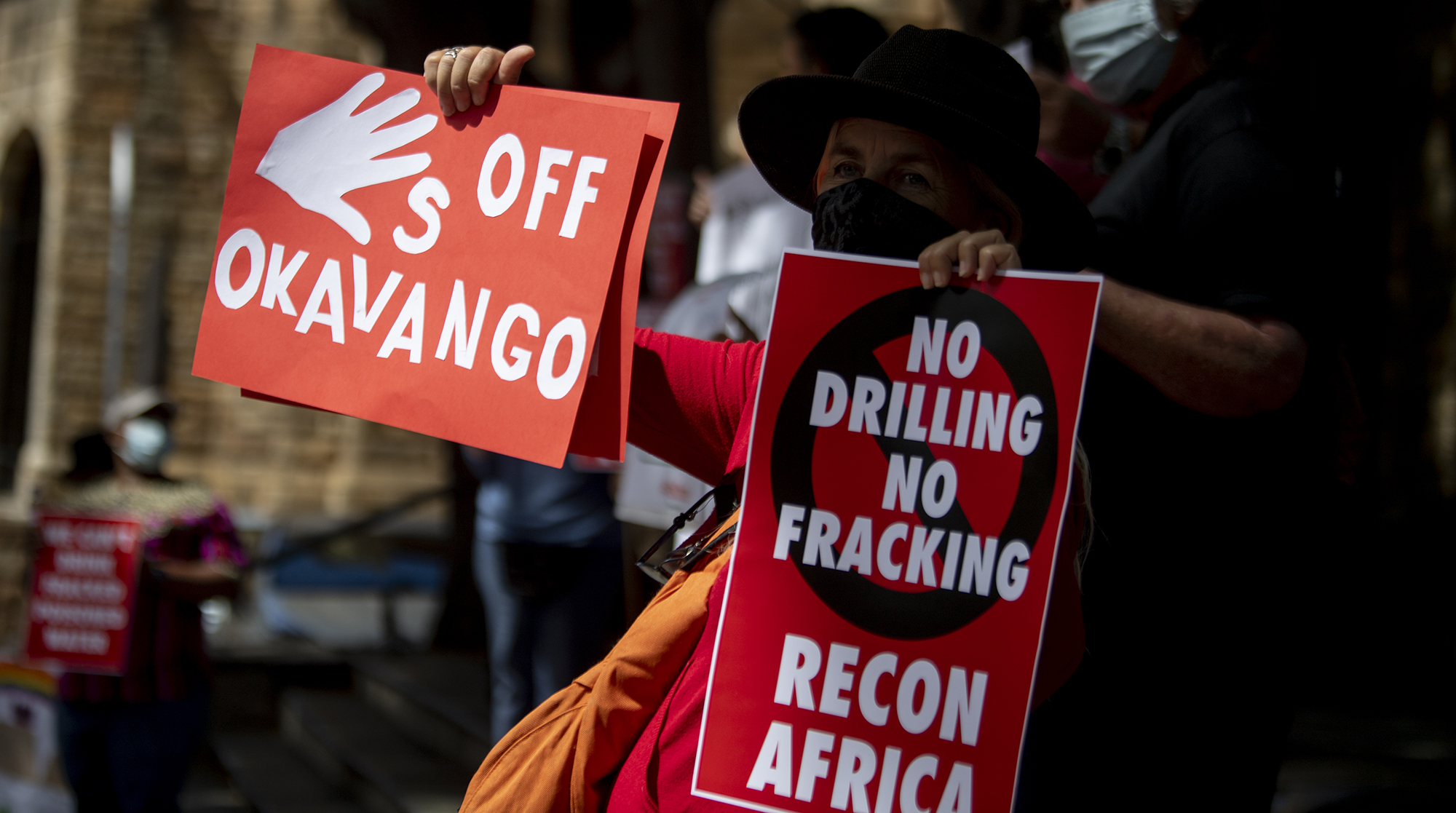CLIMATE JUSTICE CHARTER OP-ED
We must heed ‘the cry of the Earth’, for our scriptures call us to protect the sanctity of creation

The top environmental problems are selfishness, greed and apathy, and to deal with these we need a cultural and spiritual transformation. Scientists don’t know how to do that, but people of faith do — starting with their spirituality.
The Climate Justice Charter enjoys wide support from people of faith. Many of its principles are in line with the values of faith communities, such as the awareness that we all thrive and coexist on one planet. This thinking is reflected in a letter from Pope Francis entitled Laudato si’, which calls on us to care for our “common home”.
We are guardians of our planet’s ecosystems, as reflected in the sacred scriptures of faith communities. For instance, in the Bible the very first commandment given to human beings, found in Genesis 2:15, stipulates:
“Work the land, but look after it.”
We depend upon Mother Nature for food, shelter and warmth, and so we are called to be guardians and keepers of the Earth.
The Climate Justice Charter states that humanity needs to change its obsession with constant progress and the domination of nature. It’s a worldview and philosophy that is leading to the destruction of our very home.
The role of faith communities in supporting the principles enshrined in the Climate Justice Charter is important. They have two key strengths to bring to the environmental movement: values and reach, with the latter being the result of the widespread existence of faith communities in all corners of the country, from the smallest rural village to the largest city.
Regarding values: our scriptures call us to protect the sanctity of creation, and we recognise that we are all part of the precious web of life which is unravelling. As the Green Anglicans, we support the charter, because we believe that social justice and climate justice are one cause. In the words of Pope Francis: we must hear “the cry of the poor and the cry of the Earth”.

Pope Francis. (Photo: EPA-EE / Fabio)
Fossil fuel addiction
Our current dependence on fossil fuels is putting us on course for a climate change catastrophe. A recent report by the UN’s Intergovernmental Panel on Climate Change indicates that decisions made in the next few years will have a huge impact on the quality of life for our children and grandchildren. UN Secretary-General António Guterres says we are now on “code red for humanity” and that there is no more space left in the carbon budget. New oil and gas fossil fuel explorations must cease immediately.
Gus Speth, a US adviser on climate change, said: “I used to think that the top environmental problems were biodiversity loss, ecosystem collapse and climate change. I thought that 30 years of good science could address these problems. I was wrong. The top environmental problems are selfishness, greed and apathy, and to deal with these we need a cultural and spiritual transformation. And we scientists don’t know how to do that.”
What could the role of faith communities be in this?
We start with our spirituality. We need to move from an extractive view of the Earth, that it is a resource to be used and abused at will. Rooted in the belief that all of creation has value because it bears the fingerprints of the creator, we are called to treasure and protect it. We need to see the connectedness of all life, that we are part of and depend on it.
Recognising the damage that we have already done, we must also strive to renew and heal what has been destroyed.
Spiritually motivated
Motivated and sustained by our spirituality, we must move to local actions. As people of faith, we can take many actions as individuals, families and communities.
We need to find ways to save and treasure water, reusing grey water in our gardens and installing water harvesting devices such as water tanks. We must be protectors of groundwater, and if we have drilled boreholes, be good stewards of the water below the ground. We must support and train our members and local communities in home food growing as a way to promote food security. We need to promote the growing of indigenous trees and plants, to restore ecosystems, hold the soil, reduce carbon pollution and create shade as temperatures increase. Faith communities should be at the forefront of fighting plastic pollution and modelling waste-free ways of celebrating our festivals and events such as funerals and weddings.
We must all find ways to reduce our carbon emissions, for example by installing solar geysers, encouraging car sharing and having online meetings to cut down on travel. Environmental sustainability should be part of the planning for our conferences and events. Faith communities can model actions that can be shared with the greater community. Environmental messages can be shared and inspiring examples highlighted at worship meetings. The impacts of climate change not only on South Africa but in other parts of Africa and the world should be brought into our prayers and consciousness.
But the triple challenges of climate change, biodiversity loss and pollution are so great that local actions alone are not enough, and we must also think and act globally. Faith communities have international links and are part of global networks. We can raise the voices of young climate activists at these events, such as a recent global gathering of Anglican bishops, the Lambeth Conference, where a young climate activist from Kenya, Elizabeth Wathuti, was invited to address the gathering.
Faith leaders in many parts have standing in the community and can bring moral weight to issues through statements or other messages.
End the ‘curse of black gold’
The bishops of the Anglican Church of Southern Africa recently called for a halt to new fossil fuel explorations, saying:
“Africa’s natural habitats are being destroyed at an alarming rate through the extraction of oil and gas, with many new projects in the pipeline. Known in Nigeria as the curse of ‘black gold’, fossil fuel extraction is polluting the water and the land. Oil companies are abusing the rights of indigenous and rural people and forcing them off their land. Oil and gas exploration and exploitation are leading to political destabilisation and increased violence.”
The choices we make now will determine the future of Africa. We face species extinction, widespread disease, life-threatening temperature extremes, droughts, ecosystem collapse, rising sea levels, floods, storms and wildfires, unless there is transformational change by individuals, communities, businesses, institutions and governments.
Africa is a continent richly blessed with sun and wind. Investment in renewable energy, now the cheapest form of energy worldwide, will create far more jobs and long-term savings. Renewable energy will be generated without the health-damaging pollutants of fossil fuels or global warming that will push the world past a catastrophic 1.5°C increase in temperature. The declining worldwide demand for fossil fuels will also leave Africa with a legacy of stranded assets.
Ramping up destruction
Yet, rather than halting fossil fuel extraction, many governments are actively encouraging exploration for oil and gas reserves by foreign companies. This is despite each country’s commitment to the Paris Agreement and their promise to formulate nationally determined contributions of climate-changing emissions.
Across the continent, foreign companies, supported by African governments, are putting profit before the planet. ReconAfrica, a Canadian oil and gas company, is drilling for oil and gas in the Kavango Basin in northeast Namibia. The company’s 25-year production licence covers more than 34,000km2. Major oil extraction threatens scarce water supplies and is likely to cause widespread ecological destruction to the Okavango Delta, a Unesco World Heritage site. It would also disrupt traditional livelihoods and displace indigenous communities.
The Virunga National Park in the Democratic Republic of the Congo (DRC) is a protected Unesco World Heritage site. It has a wealth of biodiversity but is threatened by oil exploration. Unesco has appealed to the DRC’s government to cancel all oil exploration permits and focus on longer-term sustainable development opportunities.

People stage a silent protest in 2021 on the steps of St George’s Cathedral in Cape Town against exploratory drilling by Canadian Company ReconAfrica in the Kavango basin of Namibia and Botswana. (Photo: Gallo Images / Die Burger / Jaco Marais)
Another oil pipeline
The plan to build a heated pipeline that will carry crude oil from western Uganda through Tanzania to the Indian Ocean, the East African Crude Oil Pipeline, will damage fragile ecosystems and displace families from their land. The Ugandan and Tanzanian governments, the French oil company Total and the China National Offshore Oil Corporation have partnered in this agreement.
Multiple foreign corporations (including Total) have invested in the offshore gas reserves of northern Mozambique. In spite of promises, the vast development has not benefited local communities. People are losing their ancestral land and culture. Many young men have joined the Al-Shabaab insurgency group perpetrating brutal and indiscriminate attacks on civilians. The Quirimbas National Park, a Unesco Biosphere Reserve, will also be exposed to the impacts of dredging, waste disposal and construction.
As people of faith, we believe we have been given the responsibility to care for, protect and preserve Africa’s magnificent creation. That is why we support the charter. DM/MC
The Rev Dr Rachel Mash is the environmental coordinator for the Anglican Church of Southern Africa.
The full statement from the bishops and its signatories can be found here.




















 Become an Insider
Become an Insider
Comments - Please login in order to comment.